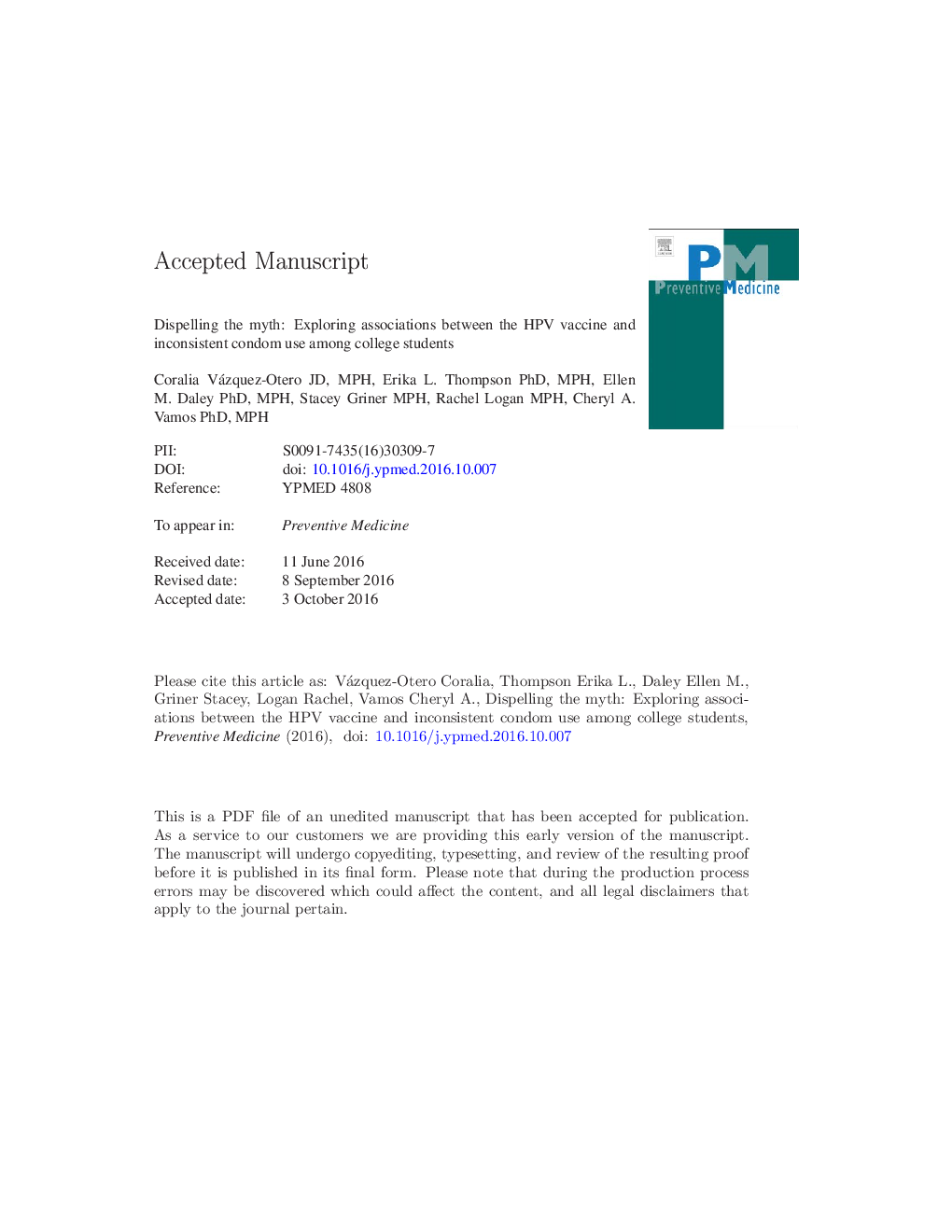| Article ID | Journal | Published Year | Pages | File Type |
|---|---|---|---|---|
| 8693845 | Preventive Medicine | 2016 | 19 Pages |
Abstract
Human papillomavirus (HPV) vaccination is safe and effective in preventing anogenital cancers and warts. However, myths have surrounded the HPV vaccine since its approval, including the possibility that HPV vaccinated young people are more likely to engage in risky sexual behaviors. The purpose of this study was to assess the association between HPV vaccination and engaging in inconsistent condom use in a sample of U.S. college students. A secondary data analysis of the National College Health Assessment-II (Fall 2013) was conducted in 2015. Risky sexual activity was operationalized as inconsistent condom use for oral, vaginal or anal sexual activity. Logistic regression models were stratified by sexual activity and gender, and controlled for socio-demographics and history of STIs. Inconsistent condom use was reported among females for vaginal (47%), oral (94%), and anal sex (75%); while males reported levels of inconsistency for vaginal (38%), oral (94%), and anal sex (58%). Sixty-nine percent of females reported receiving the HPV vaccine compared to 43% of males. Among females, there was no significant association between HPV vaccination and inconsistent condom use in any of the sexual activities. Among males, there was no significant association between HPV vaccination and inconsistent condom use in oral or vaginal sex. HPV-vaccinated males were less likely to report inconsistent condom use during anal sexual activity. This study contributes to the increasing evidence that HPV vaccination is not associated with risky sexual behavior. Dispelling this myth is important to facilitate uptake and completion of the HPV vaccine in the U.S.
Related Topics
Health Sciences
Medicine and Dentistry
Complementary and Alternative Medicine
Authors
Coralia JD, MPH, Erika L. PhD, MPH, Ellen M. PhD, MPH, Stacey B. MPH, Rachel MPH, Cheryl A. PhD, MPH,
